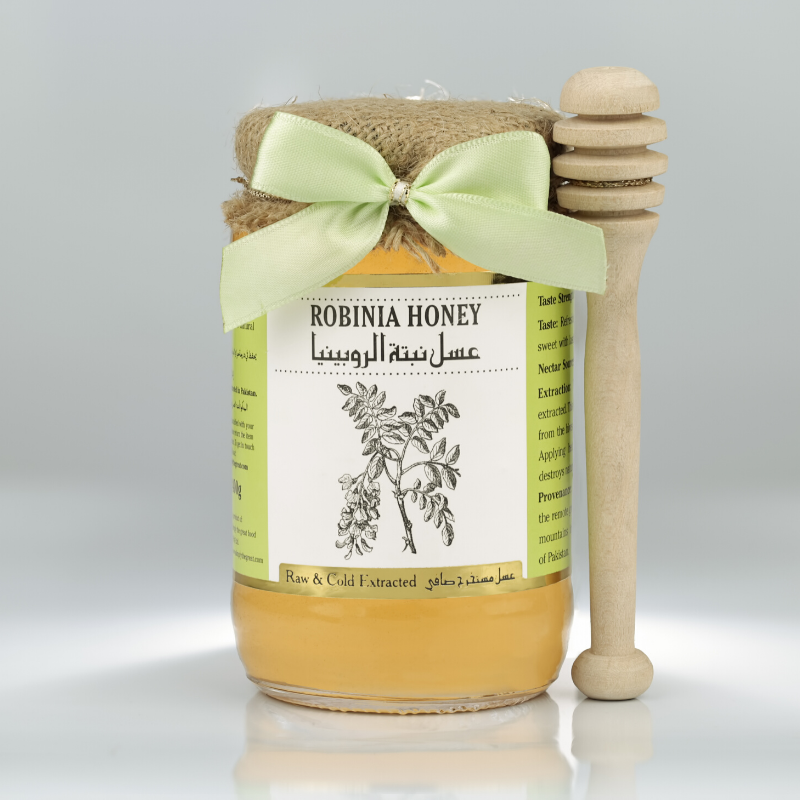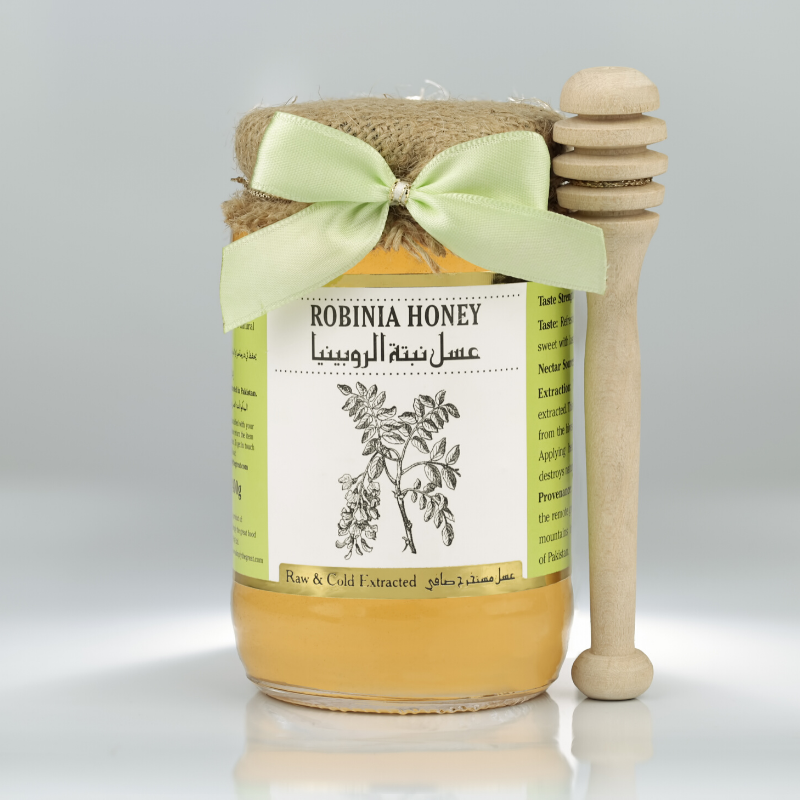Raw & Cold-Extracted | عسل مستخرج صافى
Robinia Honey عسل نبته الروبينيا
Couldn't load pickup availability
NECTAR SOURCE: Wild Robinia Flowers only.
CONSISTENCY: Smooth and creamy.
COLOUR: Pale white and light golden.
TASTE: Refreshing, exotic and delicately sweet with lasting Robinia flower notes.
PROPERTIES: Good when suffering from the flu, disinfectant of urinal tracts,
This rare and unique honey has been extracted from the blossom of Black Locust Tree (Robinia pseudo-acacia) which is famous for producing a fruity and fragrant honey that is almost transparent in
The Black Locust Tree is spread through certain areas in Ghizer Valley of The Himalayas. It blossoms for only 6 weeks in a year (between April and May) producing white flowers. The black locust does not always produce a crop of honey. Nectar flow is very dependent on local weather conditions and some years the flowers yield little or no nectar at all.
Our beekeepers are trained and certified in the art of cold-extraction of honey to EU Standards.
Why we can not sell our honey cheaper?
- We do not mix this honey with other cheap ingredients in order to bulk up the honey. This is pure honey. There are no additional ingredients.
- We do not heat our honey in order to extract it more easily. Yes, we spend more time and energy manually extracting the honey- because we want to keep our honey raw with those amazing health benefits.
- We do not filter our honey. So this honey has natural bee pollen, micro pieces of propolis and bee wax, all of which benefit your health.
- We do not use our bees for commercial pollination. Our bee farm is located in a wild place, so our honey does not have any pesticides or herbicides or other harmful chemicals.
- Any real beekeeper will tell you how much work is required with bees to get each jar of honey. If you have bees, then you just work, work and work.
- We do not use any chemicals in order kill pests found in the hives, nor do we use chemicals in the winter time in order to help the bees survive until spring. If you do your research you will find that 90% of beekeepers use chemicals on bees.




